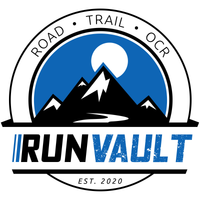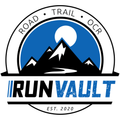Downhill Running Technique and Strength Training
Running downhill can be your best friend or worst nightmare in a race. It's usually not until some time into your running journey that you become aware of the work needed in running downhill. Improper technique and lack of training (both on the slopes as well as in the gym) can dramatically affect your time in a race and recovery from a training run, especially in the quads, glutes and core.
Running at speed downhill is a real skill and you're able to make up a lot of time in race, you may even be able to put in an attack on opponents to make up places.
In this article let's take a look at proper form and technique for running downhill and exercises you can do at home or in the gym to strengthen your downhill game.
How to Run Downhill
Confidence
Natural forward lean
Find a comfortable forward lean into the slope. If you are leaning back you will naturally land directly on your heel which has a serious impact on your muscles and joints. This also has you braking each and every step which slows you down considerably. Leaning too far forward and you are prone to over striding and losing control, significantly increasing your risk of injury and falling.
A natural and gentle forward lean is the best position to be in to stay in control. Your foot will strike the ground with minimal impact and maximum absorption. To find that balance, stand looking down the slope with feet shoulder width apart. Gently lean forward until you feel your body starting to fall down the slope. When you find that tipping point, lift one foot of the ground and start to run down the hill. Maintain that position while descending.
Stay relaxed and in control
Maintain correct running form
Great running form improves efficiency, performance and reduces injury. Our form guide is shown here on this infographic . Form when running on the slopes is no different to flat terrain. Avoid pivoting at the hips. Instead, imagine a straight line from where you foot strikes the ground through to your shoulders and head. This will be fairly close to perpendicular to the ground on the descent.
Higher cadence, smaller steps
Quicker feet and less contact on the ground will increase your speed and assist in staying in control without over striding. Be light on your feet and let gravity guide you down the slope with quicker and shorter steps. Just like flat running, you shouldn't be pushing off the ground, rather have your foot land directly underneath you and let forward momentum pull you forward.
Upper body, relax and use your arms for balance
A smile goes a long way. If you feel your upper body becoming tense, relax with a smile as this tends to reduce tension on your shoulders. Depending on the descent being steep or technical, your arms can be used as balance to assist in keeping control of every movement. Run with your arms out wide from your body to stabilise yourself when descending.
Downhill running summary
-
Stay confident and relaxed
-
Lean naturally forward from the feet not the hips
-
Land under your body with quick and short steps
-
Use your arms for balance
Strength training to improve running performance downhill
Improvement in running doesn't come just from running. Improve your strength and ability in downhill running with these exercises. Mix up the exercises with symmetrical training as well as unilateral training. Below are some of my favourite, they are lower limb specific however a strong core plays a huge part in downhill running especially when the ground is uneven so make sure you incorporate core training into your program.
The video below demonstrates the exercises.
SQUATS
Squats should be a staple in any runners strength program. The glutes and quads are significantly impacted with each downhill stride as a huge amount of weight is loaded on each leg with each downhill step. Squats come in many forms.
Back squats, goblet squats, seated single leg squats, pistol squats. Be sure to add squats to your running training program
SPEED SKATERS
Speed skaters require a lot of balance and coordination and are perfect for strengthening your glutes and quads for technical downhill trail sections and switchbacks.
BULGARIAN SPLIT SQUATS
An advanced exercise that also targets the glutes and quads. Start with no added weight as a beginner or add weight with dumbbells or a bar across the back. The box shouldn't be any taller than 30cm's and keep the upper body upright as best you can throughout the movement without dipping forward.
FORWARD ALTERNATING DROP LUNGE WITH/WITHOUT WEIGHT
This movement simulates the ground impact of downhill running with eccentric load. Move fast at the start of the lunge then absorb the impact by sinking into the lunge, maintain an upright body and lift up with control back to the starting position.
LATERAL WEIGHTED WALKING LUNGES
Performed just like a walking weighted lunge, instead with this movement you are walking in a diagonal direction as opposed to directly forward. Also great for preparing for a technical downhill section of a race.
Are you looking for improvement in your own running and more tips?
Get in touch at jamie@runvaultperformance.com.au


Leave a comment